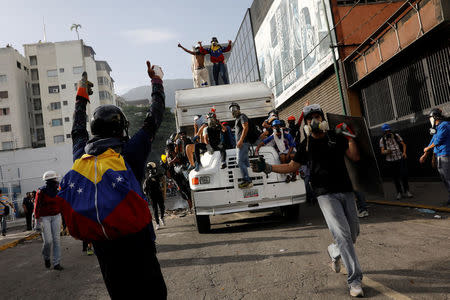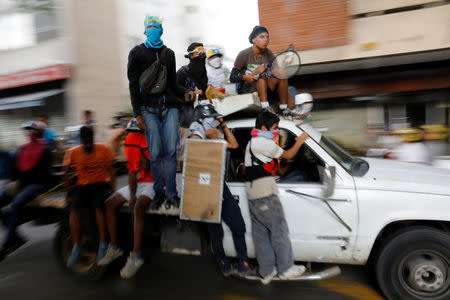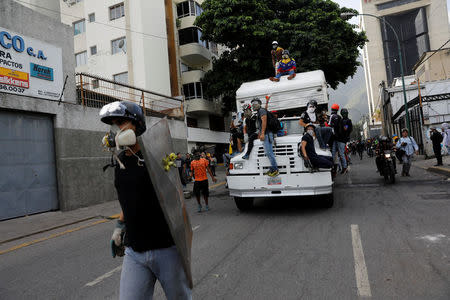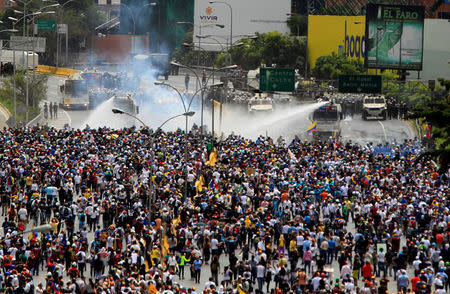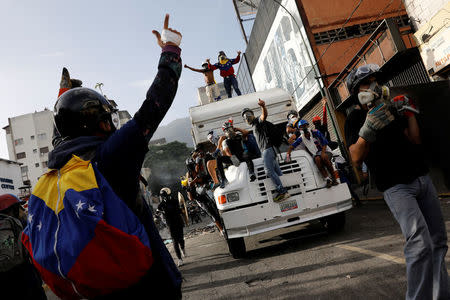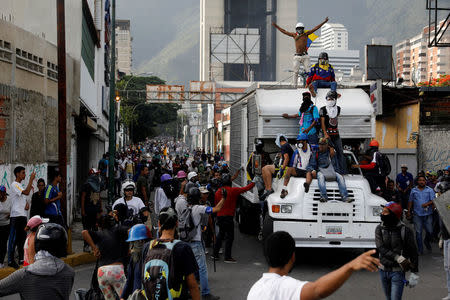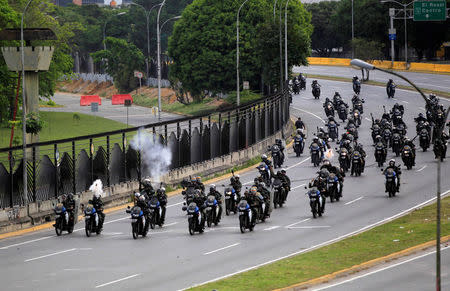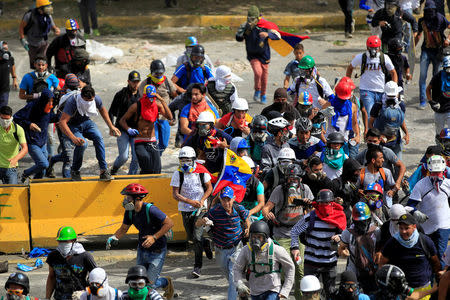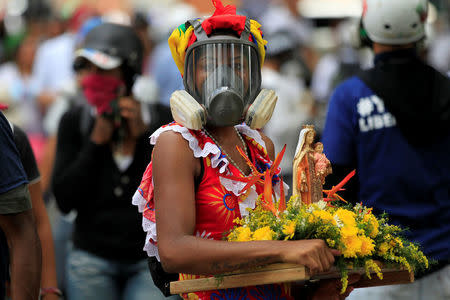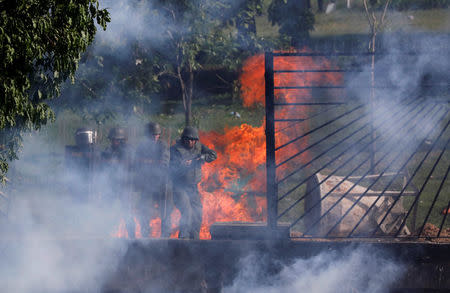Venezuelan judge shot dead at barricade as unrest persists
By Andreina Aponte and Andrew Cawthorne CARACAS (Reuters) - Gunmen shot dead a Venezuelan judge at a street barricade in the latest fatality of two months of anti-government unrest that has seen at least 61 people killed, authorities said on Thursday. Nelson Moncada, 37, was killed and stripped of his belongings as he tried to get away from the roadblock on Wednesday night in Caracas' El Paraiso district, the scene of regular clashes, the state prosecutor's office said. This week has seen widespread violence around the Venezuelan capital, with security forces repeatedly breaking up marches by opposition supporters towards government offices downtown, and skirmishes continuing into the night. Protesters frequently block roads with trash and burning tires, sometimes asking passers-by for contributions toward a self-styled "Resistance" movement against President Nicolas Maduro. It was unclear why the judge was targeted. Some local news sites said the incident appeared to be a robbery while others noted he had presided in the controversial case of Bassil Da Costa, a protester shot during another wave of anti-Maduro demonstrations in 2014. Victims from the violence then and this year have included supporters on both sides, bystanders and members of the security forces. El Paraiso has seen nightly clashes between demonstrators, pro-government gangs and National Guard soldiers. Venezuela's opposition is demanding new elections to replace the unpopular socialist president whom foes accuse of wrecking the OPEC nation's economy and of becoming a dictator. Maduro, 54, calls them coup-mongers seeking his violent overthrow with U.S. support akin to the short-lived toppling of his predecessor Hugo Chavez in 2002. PROSECUTOR SLAMS ASSEMBLY PLAN Maduro has called for the creation of a super body, known as a constituent assembly, with powers to rewrite the constitution, but the opposition is boycotting the process, saying it is a sham intended purely to perpetuate the socialists' rule. There has been criticism, too, from within government, where some say it is unnecessary to change the 1999 charter promoted by Chavez, especially without a referendum. Chief state prosecutor, Luisa Ortega, who has broken with Maduro in recent weeks, went to the pro-government Supreme Court on Thursday to question its sentence this week approving the constituent assembly process without a plebiscite. "This sentence is a backward step for human rights ... popular participation has been reduced to a minimum," she said, before quoting a speech by Chavez at his 1999 inauguration where he lauds "popular sovereignty" over institutions. While Ortega's office has noted 61 deaths in protests and lootings that began in early April, Venezuela's state ombudsman Tarek Saab put the figure at 65. At a news conference, he noted there had been arrests or warrants issued for 35 members of the security forces over the fatalities. Rights campaigners say 3,000 people have also been arrested, of whom nearly half remain behind bars. Venezuela's Supreme Court ordered opposition leader Henrique Capriles on Wednesday to avoid roadblocks in the Miranda state that he governs, or face jail. Miranda includes part of the capital Caracas, and the volatile towns of San Antonio de Los Altos and Los Teques, where anti-government street barricades have been common. The 44-year-old lawyer narrowly lost a 2013 vote to Maduro after Chavez's death from cancer, and has been at the forefront of this year's protests, calling for civil disobedience. Authorities have already barred Capriles from running for new political posts for 15 years, on allegations of "administrative irregularities" that he denies, potentially hobbling another bid to run in 2018 when the next presidential vote is due. (Additional reporting by Eyanir Chinea; Editing by David Gregorio and Bernadette Baum)

